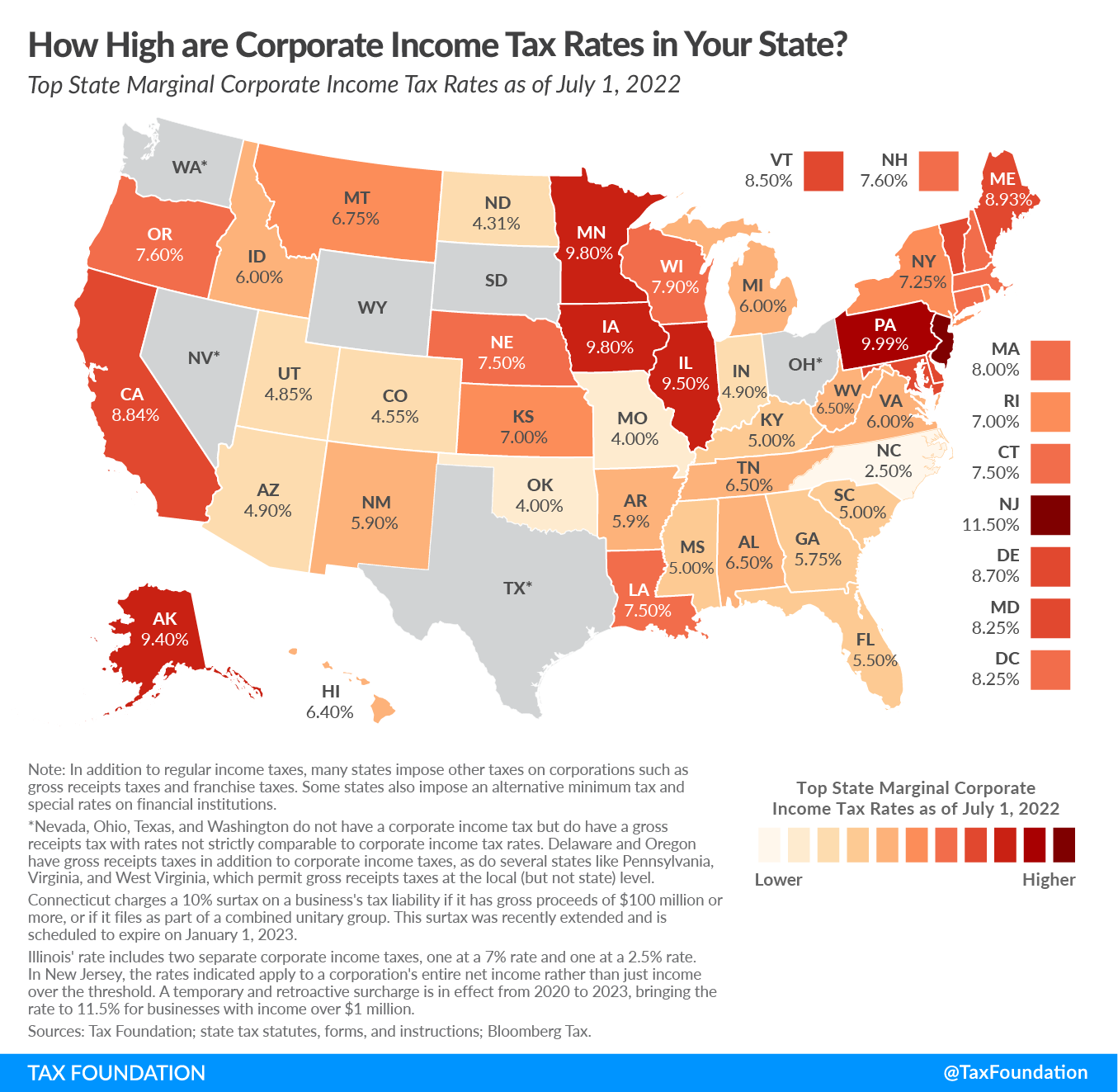2023 State Elections Feature Key Tax Questions
While most of the political world looks ahead to 2024, voters are making important choices on property taxes, wealth taxes, cannabis taxes, and more this November.
There’s always something to learn from these campaigns—popular initiatives often spread to other states—but be wary of anyone projecting one state’s vote onto the national mood. Blue states can approve tax cuts and red states can support revenue raisers because state-specific history and circumstances are central to these votes.
Property tax reforms in Colorado and Texas
Colorado Proposition HH and Texas Proposition 4 are both property tax relief changes enacted earlier this year by legislators that require voter approval this fall.
Texas’s measure was the result of an angry and drawn-out political fight in Ausitn, but the resulting initiative is relatively easy for voters to understand. If approved, Proposition 4 would increase the state’s homestead deduction from $40,000 to $100,000 and transfer state funds (boosted by recent revenue growth) to local governments for further property tax cuts.
Colorado’s measure is more complicated because of the state’s limitation on tax revenue. In short, TABOR (The Taxpayer’s Bill of Rights) currently limits what Colorado can collect and then sends excess revenue to residents via rebate checks. If approved, Proposition HH would direct some of those excess TABOR funds to local governments, allowing for property tax relief but also lowering future rebate checks.
Proposition HH would also trigger another change to TABOR that, for one year, would replace rebate checks that correspond to the resident’s income (i.e., higher income, higher tax payment, higher rebate) with a flat amount for all eligible households. Colorado Public Radio has a good summary of the all the moving parts if you want to dive in.
Wealth tax prevention in Texas
Texas Proposition 3 would amend the state’s constitution to prohibit legislators from enacting a wealth tax. No one in Texas is proposing a wealth tax. But no one in Texas was proposing an income tax in 2019, and that didn’t stop three-quarters of Texans from amending the constitution that year to keep the income tax permanently out of the Lone Star State.
As progressive groups push wealth taxes in blue states, don’t be surprised if more red states join Texas in playing defense by sending similar prohibitions to voters.
Cannabis taxes in Ohio
Ohio Issue 2 would legalize cannabis and enact a 10 percent excise tax on sales. Percentage of prices taxes on marijuana purchases, set at relatively low rates, are increasingly the most popular form of state cannabis tax.
Overall, marijuana holds an impressive 15-8 record at the ballot box. One of those losses came in Ohio in 2015, but voters in Arizona and Oregon have previously approved legal and taxable cannabis in a second vote after rejecting it the first time. In recent years, states with similar politics to Ohio (Montana in 2020 and Missouri in 2022) have supported marijuana measures, while voters in only the most conservative states (Arkansas in 2022 and Oklahoma earlier this year) rejected them. Florida and Nebraska are set to vote on marijuana in 2024.
If Issue 2 passes, keep in mind that the vote does not end the debate, because state legislatures routinely alter marijuana laws after successful ballot measures. Indeed, Ohio Republicans are already talking of changing how cannabis tax revenue is spent if voters approve the ballot measure.
Elections in Louisiana and Virginia
There are no major tax initiatives in these two states, but their 2023 ballots could have major state tax implications during the next legislative session.
Over the summer, Virginia’s budget was stalled for months because the Republican governor and Democratic Senate could not agree on taxes. Gov. Glenn Youngkin wanted billions of dollars in corporate and individual income tax cuts. Virginia Democrats did not. Eventually, the two settled on a modest increase in the standard deduction and relatively small tax rebates.
Every seat in the Virginia House of Delegates and Senate is up for election this November. If Republicans win control of both chambers, expect Gov. Youngkin’s tax cuts to come roaring back. If Democrats win one or both houses, it’s back to the negotiating table.
Meanwhile, Louisiana voters already elected Jeff Landry governor on October 14. Landry, a conservative Republican, will replace the term-limited Gov. John Bel Edwards, a moderate Democrat. This summer, Gov. Edwards vetoed a bill that would have eventually eliminated the state’s corporate franchise tax, citing budget concerns. Governor-elect Landry will probably be more sympathetic to tax cuts in a state where Republicans hold strong majorities in the state legislature.
Obviously, an uncertain fiscal future will affect these tax cut plans. But, as we’ve seen over the past three years of state tax cuts, there is a sharp split in the types of tax cuts passed in Democratic- and Republican-controlled states. Elections are tough to predict, but legislative tax action is becoming easier to prognosticate.






